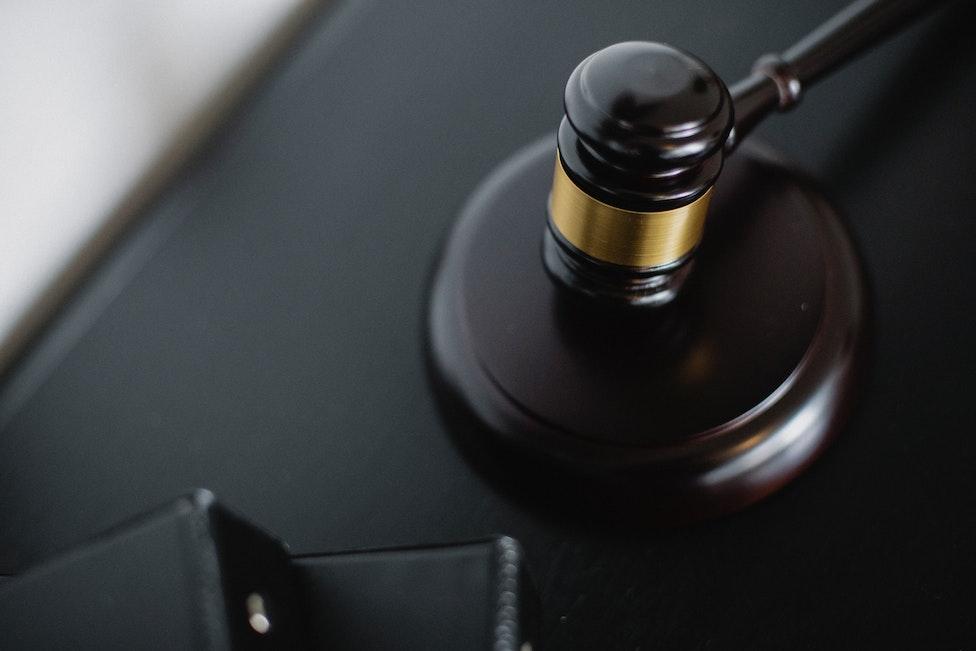A serious car accident can be a terrifying event to live through. While you may feel lucky to have survived, there is often another sobering moment that awaits in the aftermath of the accident: What happens when your car accident insurance claim exceeds your insurance limits? How can you ensure that your losses are covered and medical bills paid?
Because of the way that medical care is structured in the United States, a sudden event like a car accident can quickly rack up hundreds of thousands of dollars in medical bills. Not everyone has taken out full coverage car insurance, so many drivers are understandably left wondering what will happen in the event that they are involved in an accident where their claim exceeds their coverage limits.
If you need help with your car insurance claim, or if you need assistance after a car accident with damages that are higher than insurance will cover, our team may be able to help. Contact CarAccident.Law today to see how we can help you recover the maximum amount possible after a car accident.
Understanding Car Accident Damages
After an accident, there may be damage to more than just your vehicle. To understand what kinds of car accident damages may be involved in your case, it is crucial to understand how different damages are categorized by insurance.
For instance, most damages involved in a car accident are economic, meaning they have a direct dollar value. Economic losses are often referred to as “special damages” in insurance. Examples of economic or special damages resulting from an auto accident include:
- Medical bills: A car accident can result in immediate medical costs, such as an ambulance ride or emergency room care. This also includes surgery costs, overnight hospital stays, and doctor appointments.
- Vehicle damage: A collision can leave your vehicle with some dings and scratches, or it can total your car. Most insurance policies include coverage for the cost to repair or replace your vehicle.
- Lost wages: After an accident, there may be a period where you have to miss work in order to recover from your accident injuries. Your insurance, or the at-fault party’s insurance, should be able to reimburse you for at least a portion of your lost or missing wages caused by the car accident.
Some losses, however, are non-economic in nature, known as general damages. These losses are subjective and difficult to quantify with a dollar amount. General damages are not covered under some insurance policies and are often only attainable through a successful lawsuit. Examples of non-economic losses stemming from a car accident include:
- Pain and suffering: This is the physical pain you experience from a car accident. In some states, like Massachusetts for example, you may be able to file a claim for pain and suffering if you incurred at least $2,000 in medical expenses related to your car accident. The expenses must be considered “reasonable and necessary” to qualify you to seek pain and suffering damages. In other states, you may be able to sue even before incurring the expenses threshold imposed in states like Massachusetts. Additionally, the definition of “pain and suffering” varies depending on the details of your accident.
- Mental and emotional trauma: Some mental health concerns, such as Post Traumatic Stress Disorder, have been linked to car accidents. In these cases, an insurer may not cover the cost of therapy or other treatments to recover from mental and emotional trauma caused by a motor vehicle collision.
- Permanent disability or disfigurement, including loss of a limb and burn injuries: In cases of severe or permanent damage, an insurance claim may not be enough to cover the full extent of your losses. A lawsuit may need to be filed to cover any remaining losses, such as future medical and rehabilitative needs and diminished earning capacity.
There are, of course, other costs that can come into play after a car accident. For instance, in the case of a fatal auto accident, wrongful death damages may include expenses for funeral and burial costs, loss of consortium, and loss of financial and emotional support that the deceased individual provided before their passing.
Know Your Car Accident Insurance Limits
Your insurance company may cover different types of damages, but they may also impose a limit on the amount they will pay. Generally, this insurance cap depends on the kind of policy you have purchased.
Some states require minimum coverage in certain categories. For instance, in Massachusetts, all drivers are mandated by law to carry at least:
- $20,000 per person, or $40,000 per accident, for injuries caused to others
- $8,000 in Personal Injury Protection for medical expenses and a portion of missed wages to yourself as a driver, as well as passengers in your car and any other covered drivers of your car
- $20,000 per person, or $40,000 per accident, in Bodily Injury Insurance caused by an uninsured driver
- $5,000 worth of property damage protection
You may see your car insurance damage limits written out like this: 25/50/10. Each of these numbers represents a dollar limit that your insurance plan will pay in the event of an accident. The amounts are in the thousands, meaning your insurer would pay up to $25,000 in bodily injury liability coverage per person, $50,000 total for the singular accident, and $10,000 for property damage as the overall insurance payout for a 25/50/10 plan.
You may, however, opt into carrying more insurance for car accidents. Higher insurance premiums may cost more in the short-term but can save you thousands in the event that you are ever involved in a serious auto accident. If you are uncertain about your policy limits after an accident, CarAccident.Law can get in touch with your insurance provider and determine whether you will need to pursue additional avenues of compensation after a collision.
Case Calculator
Evaluate your claim in as little as 30 seconds

What Does Liability Insurance Cover in a Car Accident?
In a no-fault state like Massachusetts, each driver first individually applies to their own auto insurance for coverage, regardless of who caused the accident. This is called a first-party claim.
Liability insurance is a type of no-fault auto insurance intended to protect the insured party from being sued after a car accident caused by their negligence. Some states, including Massachusetts, require drivers to carry liability insurance. This coverage allows an injured individual to file a “third-party claim” through an at-fault driver’s insurance for any damages which cannot be recovered in a first-party claim through their own, no-fault insurance.
In other words, if the damage or medical bills involved are higher than your own personal injury protection coverage can account for, you may make a third-party claim through the other driver’s insurance for the remainder. For example, if your own medical bills total $10,000 after an accident in Massachusetts, and you only have the minimum mandated coverage, you may be able to make a claim for the remaining $2,000 from the other party’s insurance if they caused the accident.
Bodily injury car insurance generally covers costs associated with the injured driver, such as:
- Medical bills: Medical bills are one of the most commonly sought damages under liability insurance coverage. Injured passengers may also seek compensation under a liability insurance plan.
- Lost wages: In the event of a lengthy recovery, a portion of the injured driver’s lost wages may be covered by liability insurance.
- Funeral costs: In the tragic event that you are involved in a car accident where the other party is killed, funeral costs and burial expenses are covered under your bodily injury auto insurance.
Insurance Claims

What Happens if Accident Damage Exceeds Your Car Insurance?
If the damage caused by a car accident exceeds your or the at-fault driver’s insurance coverage limits, there are still other methods to get your losses covered. It may be possible to sue the other driver for your losses. However, the car accident lawsuit process differs from state to state.
Specifically, some states require you to meet a certain threshold before you can sue for the remainder of your accident-related costs. This threshold may have to do with the expenses you incur, the severity of your injuries, or both. Additionally, most states with no-fault laws on the books require you to have made a first party insurance claim before moving on to filing a third-party claim or a lawsuit, and Massachusetts is no exception.
In any case, a member of our team could compare your accident-related losses to your coverage limits and the limits of the other driver’s coverage to determine the best way to recover any remaining damages. It is our goal here at CarAccident.Law to help make you whole again after a collision, and we will do everything we can to ensure that every option is thoroughly explored.
For instance, you may be able to sue third parties besides the other driver for your damages if, for example, a mechanical error or environmental hazard such as unsafe road conditions caused your accident or contributed to the resulting damages. You may miss out on a valuable source of financial recovery without consulting with a car accident attorney who can help you pinpoint these other factors in the crash. In cases where the at-fault party does not have the ability to pay for the extent of your damages, it can be especially valuable to consider whether there are other parties involved who caused harm and who can be held accountable through a car accident lawsuit.

Filing a Lawsuit after a Car Accident
Do not hesitate to reach out to the expert attorneys working with CarAccident.Law for tailored, hands-on assistance with a filing a car accident lawsuit. Filing a lawsuit after a car accident can be a stressful, complicated process and the very last thing you need during your recovery period. For personalized care, contact us online for a free consultation.
The first step to filing a car accident lawsuit is to contact a lawyer. An attorney who is well-versed in car accident litigation can assist with gathering evidence and witness testimony to strengthen your claim for compensation.
For example, retrieving the police report that was completed at the scene of the accident and any surveillance footage of the collision can be made easier with the help of a local lawyer. Some people hesitate to file a police report, worrying that doing so is unnecessarily escalating the matter. However, you will need a third-party, unbiased record of what took place in order to establish who was at fault and make your claim. An attorney can contact the police department that arrived to the scene of your accident to retrieve the police report from that day on your behalf, as well as any nearby establishments with security cameras pointed in the direction of where your accident took place.
In addition to collecting the report and video footage of the collision, a lawyer can perform their own investigation into your accident and help retrieve the names and contact information of any witnesses to your accident and anyone else involved in the crash. An outside eye that saw the whole event take place can help verify your version of events, as the defense may claim that a traumatic event like a car accident would cloud your memory.
A car accident lawsuit lawyer can fight on your behalf even if the case never goes to court by negotiating with the insurance company to ensure that you are not offered a low-ball settlement amount for your accident-related losses. An injury attorney can also prepare a car accident damage report, ensure that your claim adheres to state filing rules, find medical and vocational experts to support your claim, and follow up with all of the necessary paperwork on your behalf. Most importantly, we can allow you to focus on healing during this difficult period by taking the burden of recovering any car accident damages which exceed your insurance coverage limits off of your shoulders.
If you do file a car accident lawsuit, there may be a period of mediation to attempt to settle the case before it goes to trial. Your car accident insurance claim lawyer can help you through the mediation process and advocate for you in settlement negotiations and at trial.

Need Help Filing a Car Accident Lawsuit?
STEP-BY-STEP GUIDE TO FILING A CAR ACCIDENT LAWSUIT
We’ve prepared this step-by-step guide to help you file a car accident lawsuit. Let us connect you with an attorney for a free consultation.
How much can you get from a car accident lawsuit? The answer depends entirely on the specifics of the crash, the harm done by the other party, and any liability on your own part. The average car accident lawsuit payout ranges from about $16,000 to almost $30,000.

What Can Impact a Car Accident Settlement Amount?
Oftentimes, car accidents are not clear cut.
Many different factors can impact a car accident settlement amount, such as:
- The severity of the injuries involved
- Medical costs
- Damage done to your property
- The amount of time you’ll be out of work in order to recover
- How much your or the other driver’s insurance covered
- Whether you are able to return to the same position or field that you worked in before the accident
- Any pain and suffering you have undergone
- Any lasting or future consequences from the event
- Whether the at-fault driver acted with reckless disregard for the safety of others, such as by driving under the influence of drugs or alcohol
- Your lawyer’s ability to convey the extent and scope of your non-economic damages
- Anything else that causes you to incur undue damages
Additionally, some states are contributory negligence states, which is arguably the toughest liability statute to overcome in some car accident lawsuits. Contributory negligence laws state that if the injured driver shares any responsibility for a collision, even 1% of liability, they are unable to collect compensation from the other driver.
Furthermore, some states use a pure comparative negligence model to determine liability and calculate compensatory awards. In these states, an injured driver can collect compensation in a lawsuit even if they themselves were partially or mostly at fault. For example, if an injured driver is found to be 75% liable for an accident, they may still be able to pursue a claim for the remaining 25% of damages against the other driver.
Other states use modified comparative negligence rules, meaning if you are involved in a car accident, fault is calculated on a 50/50 basis. If you are considered to be less responsible for the accident than the other driver(s), you can still seek compensation for your damages. However, your compensatory award will be reduced by your assigned percentage of fault. Otherwise, if you are found to bear more liability than the defendant driver, you will not be able to recover any compensation from them for your car accident damages.
Massachusetts is a modified comparative negligence state, with the limit for collection set at 51%. If you are found to be 51% or more at fault for causing an accident, you cannot file a lawsuit to recover additional compensation for your car accident-related losses. However, if you are only partially at fault, you may still be able to file a car accident lawsuit, but the amount you collect will be reduced proportionately to the amount you are considered to have contributed to the accident in question.
These varying degrees of comparative negligence are part of why filing a police report and enlisting the help of an auto accident attorney are so crucial to receiving the fairest possible outcome from a car accident lawsuit. In addition to witness testimony and surveillance footage of the crash, your own testimony, damage assessments, and state laws all play a role in how much you can get from a car accident lawsuit.
A good car accident lawyer can use their knowledge of the law, expertise in civil litigation, and familiarity with the court to help you recover the maximum amount of compensation available in your case.
CarAccident.Law Can Help when Your Car Accident Damages Exceed Your Insurance Policy Limits
A car accident lawyer can make sure that you don’t miss out on any opportunities for recovering your losses after a crash. The best car accident lawyers will take these concerns off of your plate and handle all of the details of filing your claim, building your case, negotiating with insurers, mediating your claim, and even representing you in court should it come to that. They can ensure that no stone is left unturned in recovering your costs after a crash.
When your car accident damages exceed your insurance limits, or if the car accident insurance settlement you’ve been offered seems too low, the team at CarAccident.Law can help. Contact us today and find out how we can help make things right after a crash.









